Residential water damage in Bloomington is more than just a minor nuisance—it’s a widespread issue that can escalate quickly if left untreated. Whether caused by plumbing leaks or torrential rains, the aftermath of water damage can be financially and emotionally draining. Worse yet, unchecked moisture can foster mold growth and structural problems in your home.
Understanding the sources of residential water damage in Bloomington is the first step toward protecting your home and your loved ones. Let’s explore the seven most common causes, how to spot them early, and what you can do to prevent a small leak from turning into a big problem.

Table of Contents
1. Plumbing Failures: The Usual Suspect
One of the leading culprits behind residential water damage in Bloomington is faulty plumbing. Your pipes and drains are designed to move water efficiently through and out of your home—but when they fail, it doesn’t take long for things to go sideways.
Warning Signs:
- Dripping sounds inside walls
- Increased water bills
- Cracks or stains on walls and ceilings
- Mold or mildew smells
Routine inspections by a plumber can help prevent residential water damage in Bloomington. Keep an eye on aging pipes and be alert for slow-draining sinks or unusual moisture around fixtures.
2. Roof Leaks: The Hidden Threat Above
Your roof is your first defense against the elements. But even a small breach in the shingles or flashing can allow water to creep into your attic, insulation, and walls—creating the perfect environment for mold and rot.
How It Happens:
- Storm damage (fallen branches, high winds)
- Worn or missing shingles
- Blocked gutters or ice dams
If you’re noticing stains on ceilings or a musty smell in your attic, don’t delay—roof leaks are a major contributor to residential water damage in Bloomington. Annual roof inspections can save you thousands in future repairs.
3. Frozen or Burst Pipes in Winter
Bloomington winters are no joke, and neither is the damage caused by frozen pipes. When water freezes, it expands—putting immense pressure on your pipes until they crack or burst.
Prevention Tips:
- Insulate exposed pipes in basements and crawl spaces
- Keep cabinet doors open to warm pipes under sinks
- Let faucets drip during sub-freezing temps
Frozen pipes are one of the most destructive sources of residential water damage in Bloomington because the rupture often goes unnoticed until it’s too late.
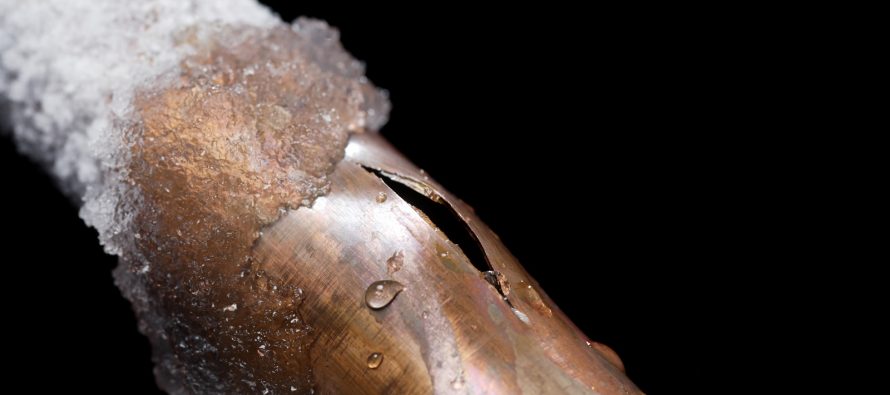
4. Severe Weather & Flooding
Spring thunderstorms and sudden downpours are common in Bloomington and can overwhelm sump pumps, gutters, and foundations. In the worst cases, flash floods saturate your property in minutes.
What You Can Do:
- Invest in a battery-operated backup sump pump
- Ensure proper yard grading and drainage
- Install a flood alarm in your basement
When the skies open up, preparation is your best defense against residential water damage in Bloomington. Having the right tools and planning in place can make all the difference.
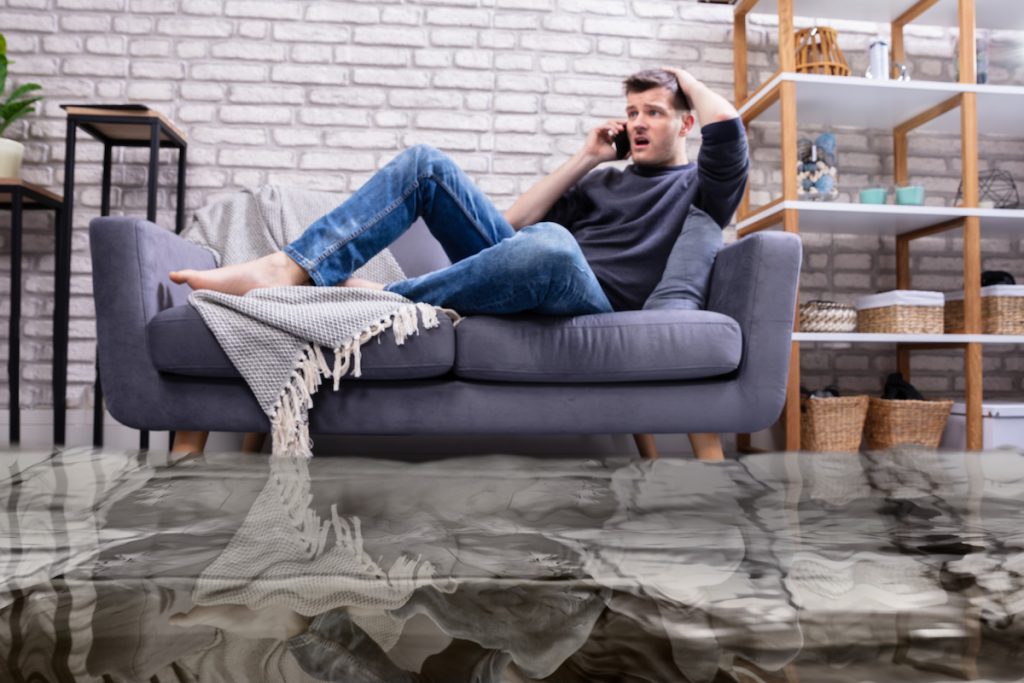
5. Poor Drainage Around the Foundation
Even if your roof and plumbing are in good shape, poor exterior drainage can lead to water pooling around your home’s foundation. Over time, this pressure forces moisture through cracks and into your basement.
Signs of Poor Drainage:
- Puddles forming near your home after rain
- Cracked or bowing foundation walls
- Damp basement or crawl space
Clean gutters and functioning downspouts are essential in preventing residential water damage in Bloomington. They keep water flowing away from your home instead of letting it seep in.
6. Failing Appliances & Equipment
Water heaters, washing machines, dishwashers, and refrigerators with water lines are frequent culprits of water damage. As these appliances age, their hoses and seals can crack or disconnect, leading to slow leaks or major floods.
Keep an Eye On:
- Pooling water near appliances
- Rust or mineral buildup on hoses
- Loud or strange noises during operation
Checking these appliances every few months can help you avoid unexpected residential water damage in Bloomington, especially when you’re away for extended periods.
7. HVAC System Malfunctions
Your air conditioning system might be keeping your home cool in the summer, but it also produces condensation. If the drainage isn’t functioning correctly, water can accumulate and cause damage in ceilings, walls, and floors.
Prevention Checklist:
- Change air filters monthly
- Schedule annual HVAC maintenance
- Check the condensate drain line for clogs
HVAC issues are often overlooked when it comes to residential water damage in Bloomington, but maintenance can go a long way in protecting your investment.
Why Residential Water Damage in Bloomington Should Never Be Ignored
Even a small leak can evolve into a full-blown crisis if you’re not paying attention. Residential water damage in Bloomington can weaken your home’s structure, lead to costly repairs, and even jeopardize your family’s health due to mold and mildew exposure.
How to Respond When Water Damage Strikes
If you discover water damage in your home, time is of the essence.
Here’s what to do immediately:
- Shut off the source of water – whether it’s a leaking pipe or overflowing appliance.
- Turn off electricity in the affected area.
- Remove valuable items from the water’s path.
- Call professionals like PuroClean of Bloomington.
We offer 24/7 emergency response and will start with a comprehensive assessment of your home’s water damage situation.
FAQs: Residential Water Damage in Bloomington
Q1: How quickly should I act if I find water damage?
A: Immediately. The longer water sits, the more extensive the damage and cost to repair.
Q2: Will my insurance cover residential water damage in Bloomington?
A: Most policies cover sudden or accidental damage, but not all cover flood-related incidents. Always check with your insurance provider.
Q3: Can I clean up water damage myself?
A: You can handle minor spills, but significant damage or contamination requires professional restoration to prevent mold growth.
Q4: How long does water damage restoration take?
A: Depending on the severity, cleanup can take a few days to a couple of weeks. PuroClean of Bloomington will provide an accurate timeline after assessment.
Q5: How can I tell if my home has hidden water damage?
A: Look for musty odors, warped floors, peeling paint, or unexplained spikes in your water bill.
PuroClean of Bloomington – Your Trusted Partner in Water Damage Restoration
When dealing with residential water damage in Bloomington, trust matters. At PuroClean of Bloomington, our team brings expertise, compassion, and 24/7 emergency response to your doorstep. Whether it’s a leaking pipe, flood damage, or mold remediation, we provide comprehensive services to restore your peace of mind.
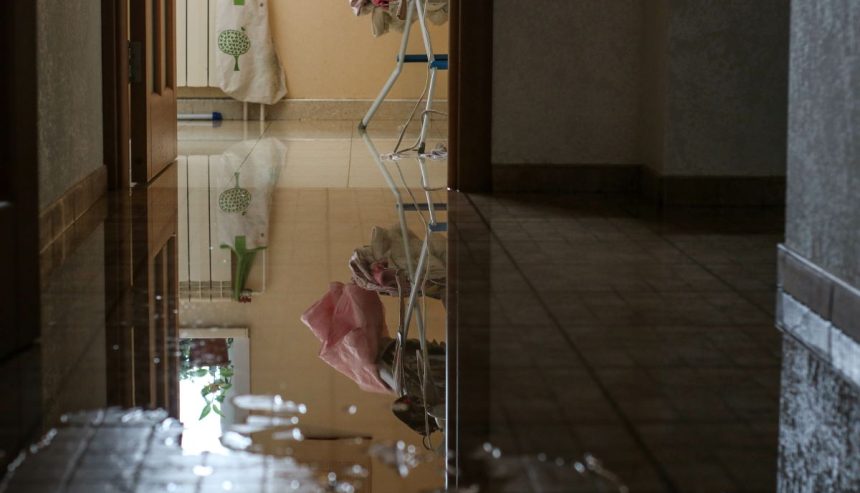

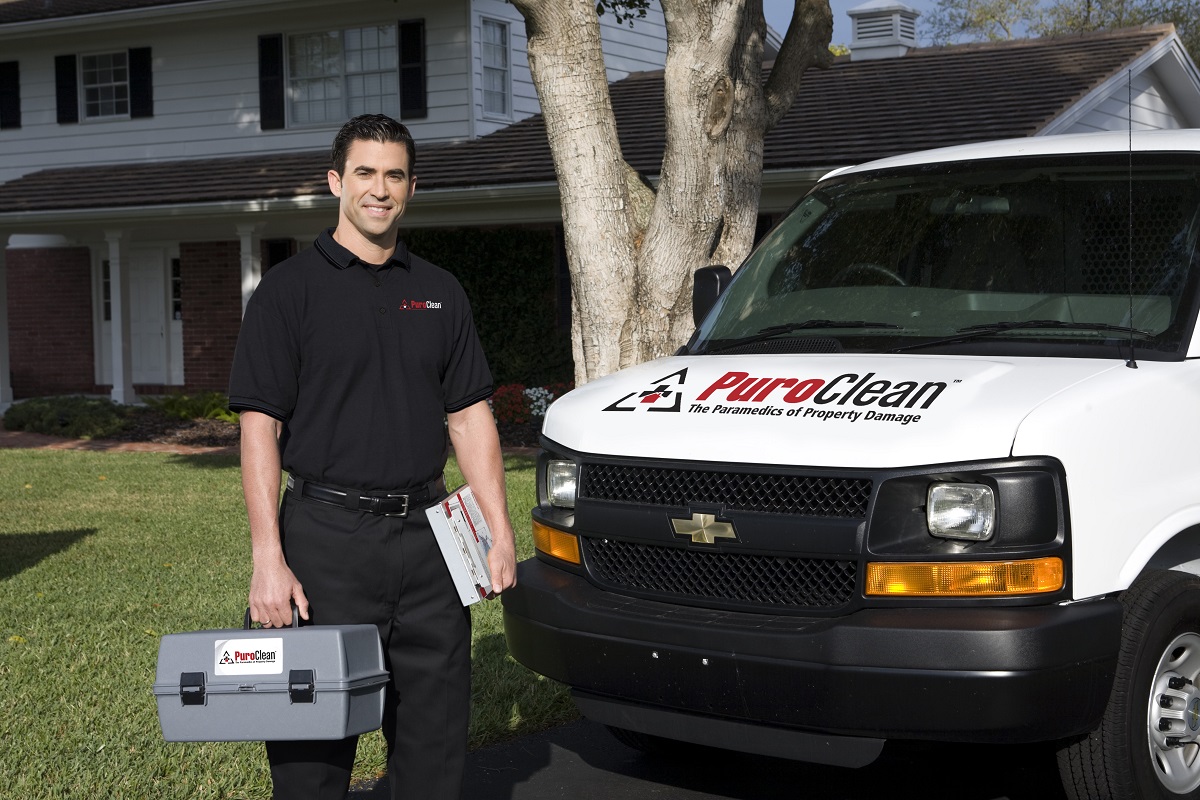
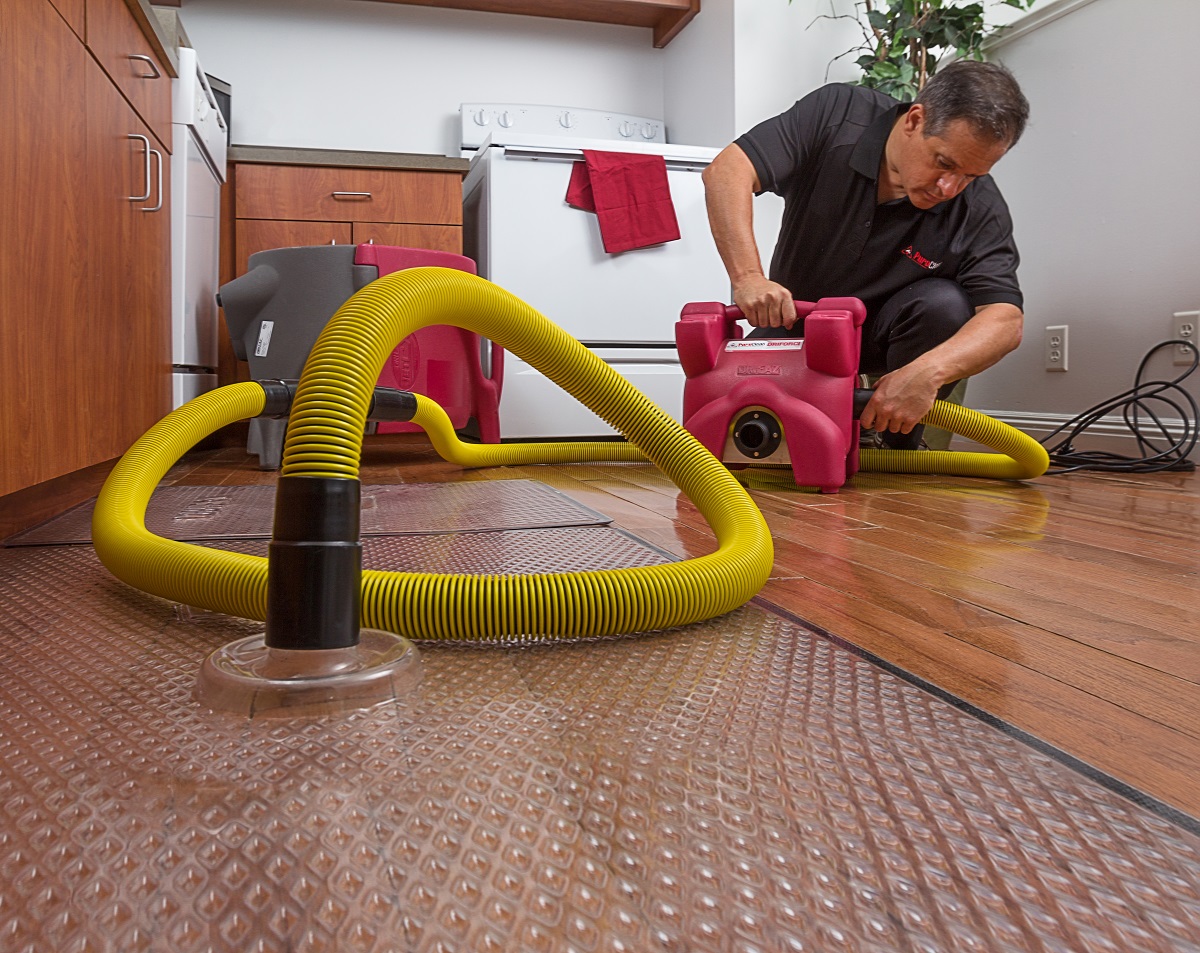
 PuroClean Of Bloomington
PuroClean Of Bloomington